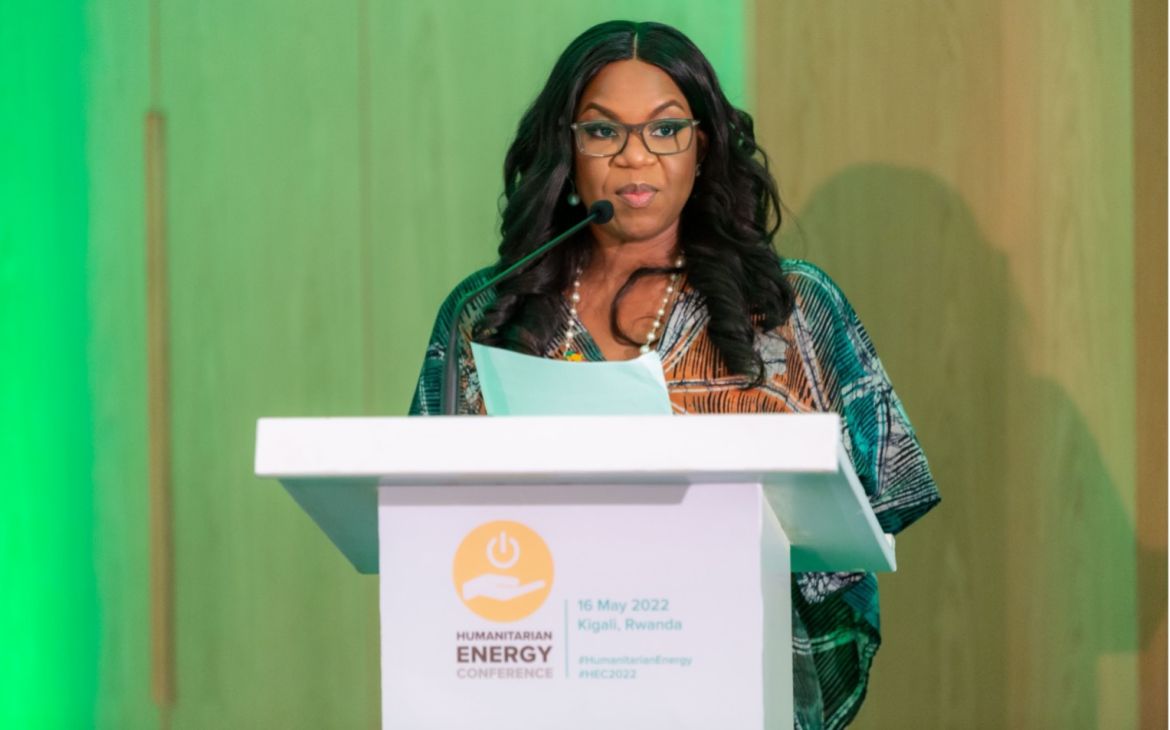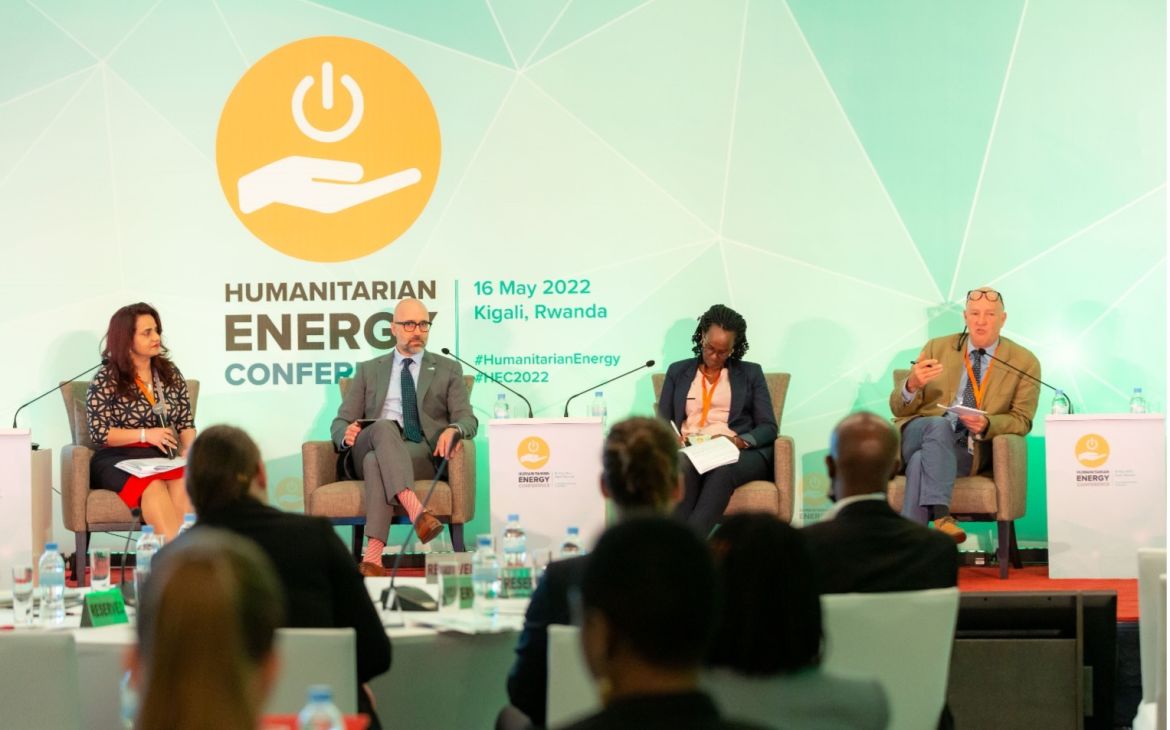21 June 2022, Geneva, Switzerland - On 16 May 2022, the Humanitarian Energy Conference (HEC) was held at the Kigali Marriott Hotel in Rwanda, convening over 200 people representing more than 100 organizations. The HEC provided the humanitarian energy community with an opportunity to reflect on progress and persisting challenges on the overarching vision of achieving sustainable energy for all refugees and hosting communities. Stakeholders engaged in the conference included government officials, UN agencies, International NGOs, private companies, academics, and other practitioners from the energy, development and humanitarian sectors. The speakers and attendees voiced the need for improving energy access for displaced people and their host communities around the world. Throughout the conference, expert practitioners shared critical insights and best practices on how to achieve SDG7 in displacement settings. The humanitarian energy community highlighted the need for immediate action on improving access to energy for all displaced people and their host communities.
A high-level panel session was held with the participation of Veneranda Ingabire, Head of MINEMA Special Projects Implementation Unit (SPIU) of the Government of Rwanda; Jennifer Morgan, State Secretary and Special Envoy for International Climate Action, Federal Foreign Office of Germany; Mark Carrato, Coordinator of Power Africa program at USAID; and Andrew Harper, Special Advisor to the High Commissioner for Climate Action at UNHCR. The session was moderated by Anila Noor of the Global Refugee-led Network (GRN). The panellists vouched for collaborative and immediate actions on ensuring renewable and sustainable energy access for refugees, IDPs, migrants, asylum seekers and other displaced people around the globe.
Throughout the day, six different deep dive sessions were held, focusing on clean cooking, electrification, inclusive policies, innovative finance, technical skills and data, and coordination and collaboration. The participants from different stakeholder communities discussed the sector’s best practices to date, as well as the past challenges and failures of energy interventions.
The first 'State of the Humanitarian Energy Sector Report’ was launched at the conference, reporting recent findings that 94% of displaced people in camps do not have access to electricity and 81% still rely on firewood and charcoal for cooking. It was followed by a session co-led by refugee energy experts and advocates, inviting the humanitarian and donor communities to invest in local infrastructure and job creation in refugee and host community settings. Panellists invited all stakeholders to prioritise the involvement of displaced people in the decision-making and policy-setting contexts of the humanitarian energy sector. A common call to action was shared, emphasizing that in order for any energy transition to be successful in displacement contexts, displaced people should be at the forefront of any and all interventions.
The conference was concluded with the announcement of the shortlists of the Ashden Awards and closing remarks from the Embassy of Germany to Rwanda.
The HEC contributed to GPA’s wider mission of ensuring that displaced persons, host communities, and associated humanitarian response mechanisms have access to affordable, reliable, sustainable, and modern energy services by 2030. Moving forward, the GPA will continue to serve as a platform for all stakeholders to exchange, collaborate and take action on how to improve energy access in displacement contexts in the coming years. All stakeholders are invited to contact the GPA Coordination Unit at energy@unitar.org for ways to collaborate and join the network.
The HEC was co-hosted by the Coordination Unit of the Global Platform for Action on Sustainable Energy in Displacement Settings (GPA), based at the United Nations Institute for Training and Research (UNITAR), Practical Action, and NORCAP with generous support from the German Federal Foreign Office, Norwegian Ministry of Foreign Affairs and the Norwegian Agency for Development Cooperation (Norad).



